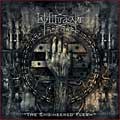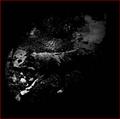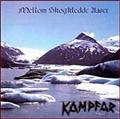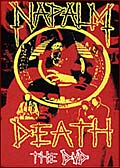ENEMYNSIDE (it) - Let The Madness Begin… (2005)
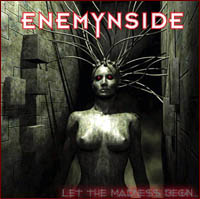
Label : Hardebaran / Two Fat Men
Sortie du Scud : mai 2005
Pays : Italie
Genre : Heavy/Thrash Metal
Type : Album
Playtime : 10 Titres - 42 Mins
A l’origine baptisé SCAPEGOAT, les quatre mousquetaires transalpins décident de changer leur nom car ils sembleraient que celui-ci soit déjà approprié ! Cela ne suffira pas à entamer l’enthousiasme d’ENEMYNSIDE nouveau look qui enregistre enfin son premier album en 2003, le bien nommé Let The Madness Begin….
De cet album, il n’en ressort pas trop de méchanceté, mais plutôt du punch et de la nervosité, les Italiens y pratiquant un Heavy Thrash qui tâche et aux divers emprunts, car on y retrouve tout aussi bien des influences à la ANTHRAX sur les morceaux « Bad Junks » ou « Scars », à la METALLICA dans « In Memory Free » par exemple.
C’est dire que les morceaux sont fortement estampillés par le spectre des groupes de Thrash et de Speed de feu les années 80 et que les Italiens ont à cœur de faire du neuf avec du vieux ! On ressent d’ailleurs une certaine attirance pour les riffs Heavy Speed, lorgnant à la limite du Metal mélodique.
Les transalpins font montre d’une relative aisance technique, de virtuosité et affichent d’excellentes dispositions dans le domaine de la composition et des arrangements, tout en délivrant ainsi un opus homogène et bien fichu, alternant morceaux speed et d’autres aux ambiances plus Heavy.
Un bien bon premier essai de la part de ce quatuor qui fait son petit bout de chemin et au quel on espère un successeur dans les plus brefs délais !
Laissez-vous tenter par la méchanceté d’ENEMYNSIDE…
Ajouté : Mercredi 05 Octobre 2005
Chroniqueur : Loki
Score :    
Lien en relation: Enemynside Website
Hits: 14479
|




